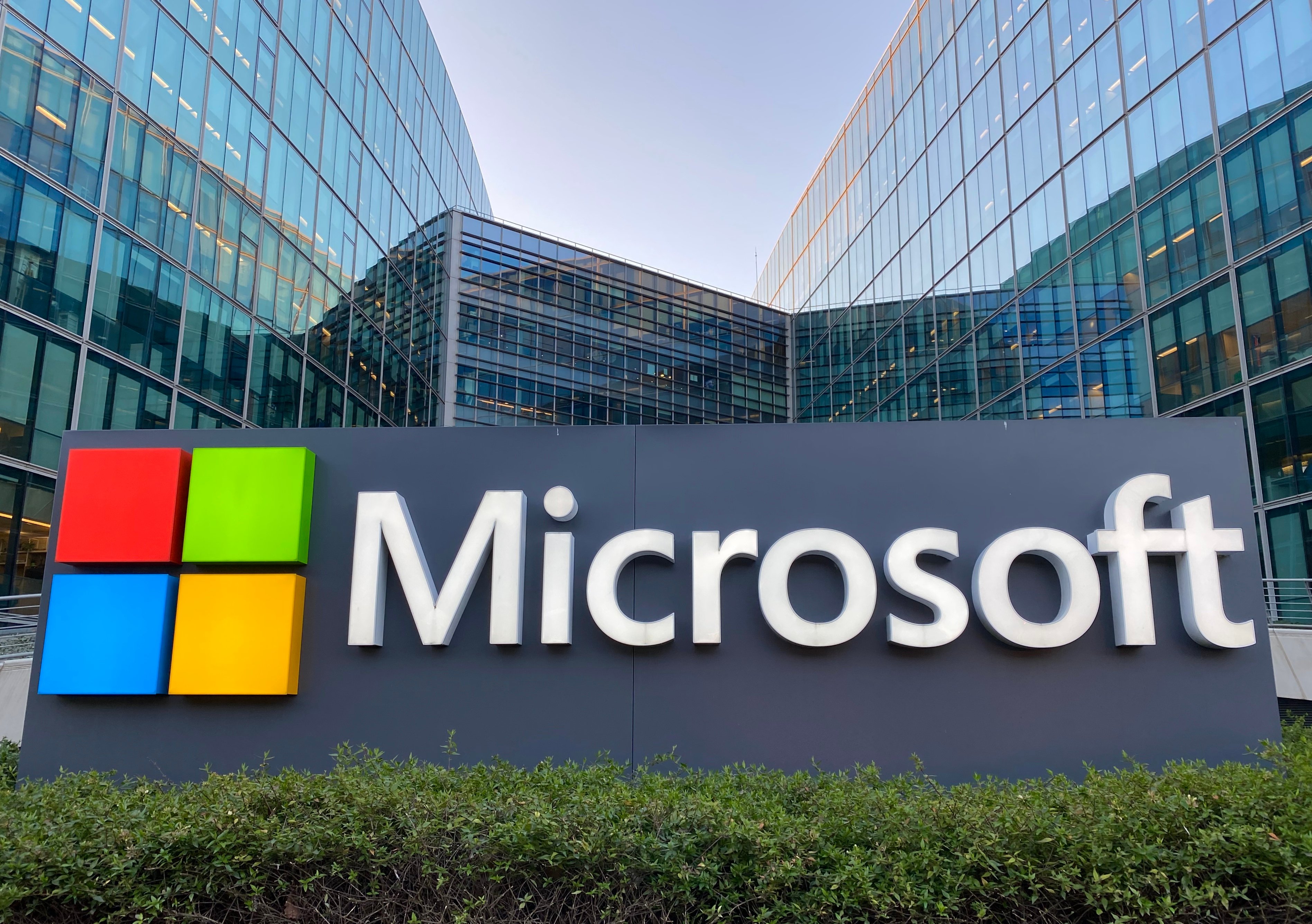
By partnering with Microsoft, Nebb can focus on what they do best: solving complex challenges for their customers in the industry.
Nebb delivers solutions within automation and specializes in advanced control systems for critical systems that are used in the process industry, the maritime sector, and the energy sector, among others.
Alexander Risøy, CEO of Nebb, believes that in the last 24 months alone, a lot has changed in the market for industrial IoT, perhaps due to the pandemic. In addition, Nebb's customers are demanding even greater solutions for the collection and use of data to manage production autonomously in a flexible, efficient, and resource-saving way.
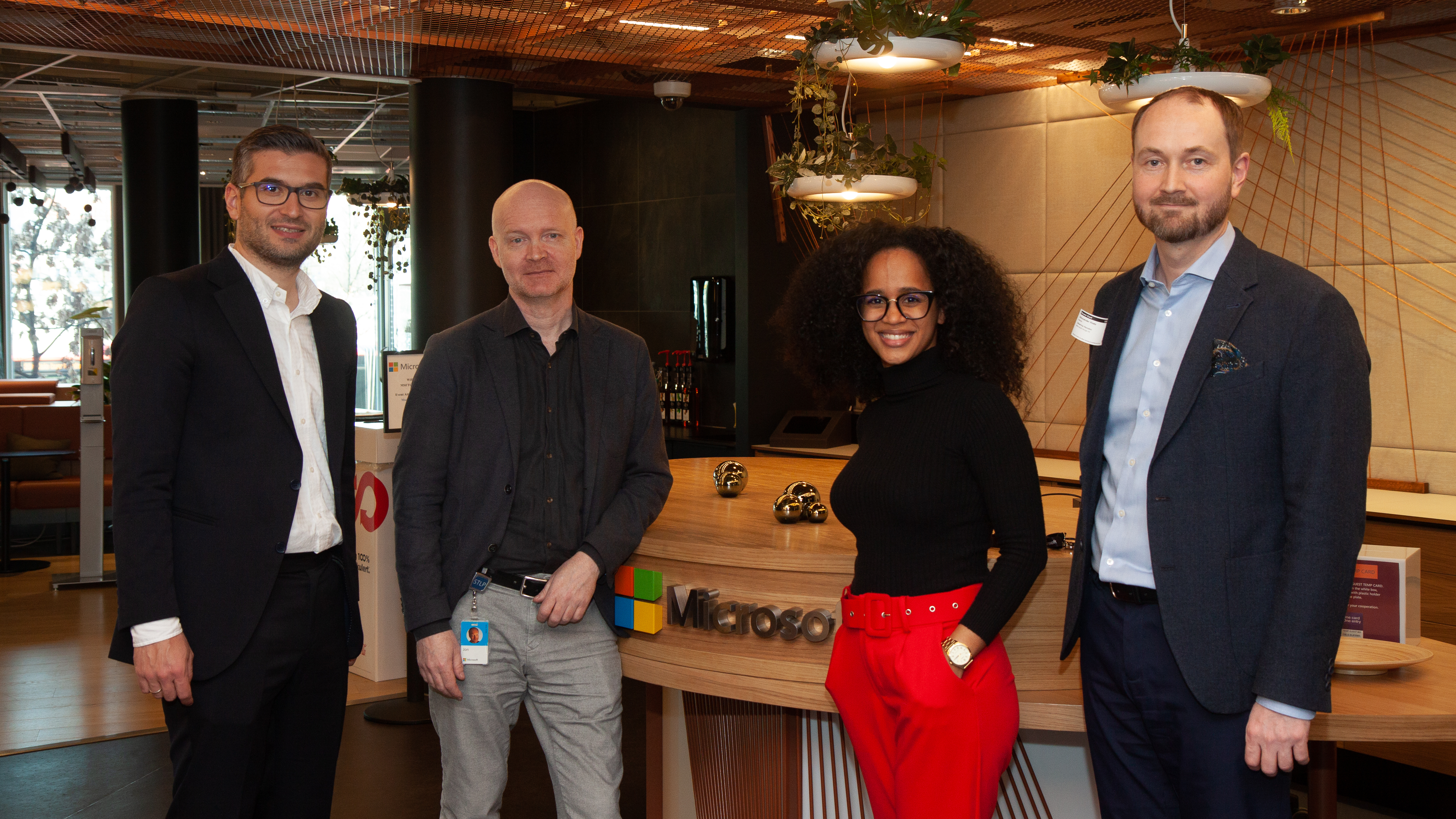
– Customers are now much more open to investing in new technology. For example, management and monitoring solutions, which do not always require people being physically present. It’s as if people are playing catch-up. While not long ago there was a lot of resistance, much of the fear has now disappeared, says Risøy.
Risøy sees great growth opportunities within industrial IoT, where Nebb has gained solid experience with a number of exciting projects around the world. For example, IoT devices can be used in conjunction with industrial control systems that monitor and control a process, such as keeping temperature, pressure, fluid flow, or other factors within given values.
– Due to the green shift, we find our customers are demanding solutions for how they can document and improve their processes to strengthen competitiveness in the transition to a low- and net zero-emission society. The global race towards net zero brings with it both enormous business opportunities and challenges. Industry is affected by stronger regulations, reporting requirements, and the need to deliver actual emission cuts, says Risøy.
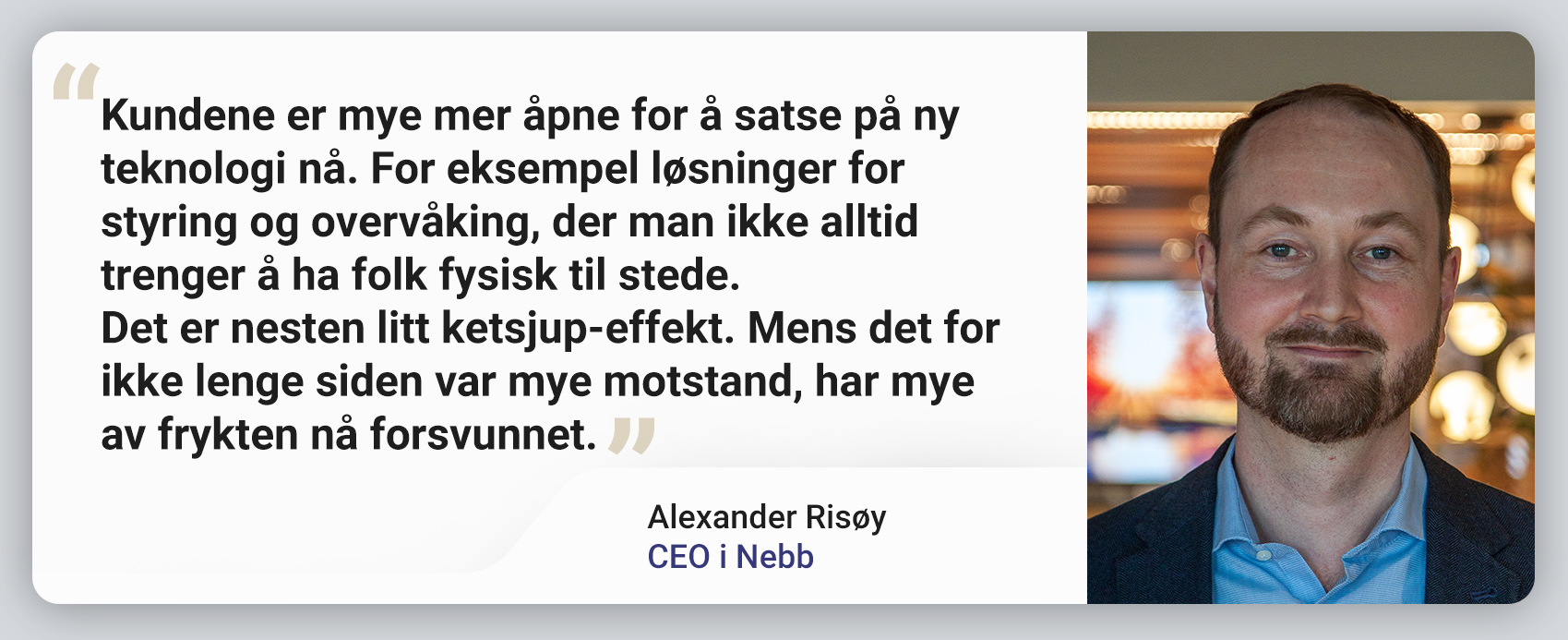
Many of the projects Nebb works on within industrial IoT would not have been possible without cloud solutions. The projects often involve collecting and transferring data from industrial control systems and IoT sensors to the cloud for further processing and analysis.
Nebb has worked with cloud solutions for around 10 years, and has largely chosen to rely on Microsoft Azure. Microsoft's worldwide data centres have provided them with the infrastructure they need as a service. In addition, the Azure cloud platform also has a range of platform services that application developers can take advantage of, meaning you do not have to develop everything from scratch yourself.
For example, we use Azure Analytics to perform predictive maintenance based on industrial data. One of the most exciting projects we are working on right now is for NGI (the Norwegian Geotechnical Institute), which is modernising and digitising its lab, says Risøy, noting the worldwide recognition of NGI's Oslo lab.
The solution Nebb has created together with NGI consists of 80 test stations where you control and monitor a range of lab tests, from simple tests on soil samples to comprehensive data from advanced machines. This is integrated with, and controlled from, a solution running on Microsoft Azure. High-resolution data from each sample is processed in the cloud.
Until recently, much of the work was done manually.
- Imagine having 80 different desktop applications. Someone has to transfer test results from each of the stations and process them manually. All these steps have now in practice been eliminated or changed to something much more sophisticated. This saves time and ensures quality and reliability. Having a cloud-based solution like this also allows for much more advanced analysis than before, says Miroslav Janeski, Technical Director at Nebb.
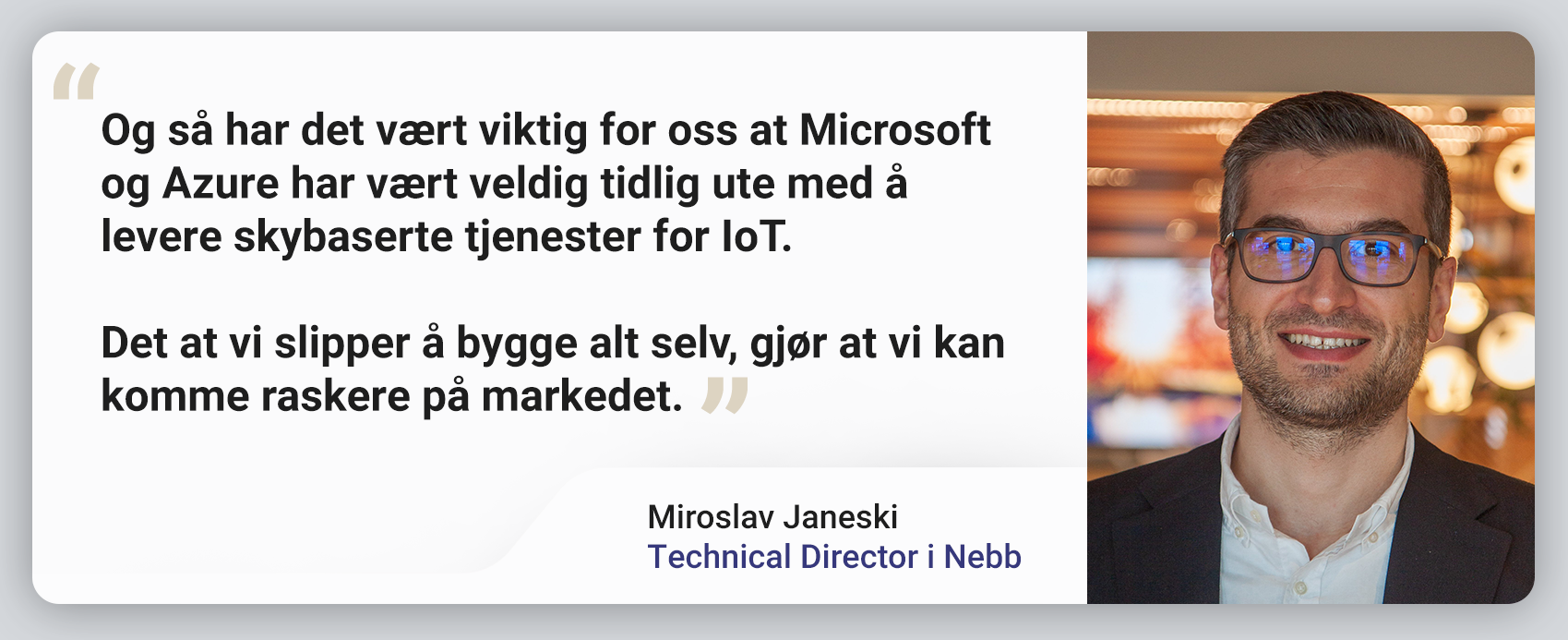
Alexander Risøy says that many of the company's customers come from fairly conservative industries with a strong focus on risk management, and that they sometimes receive questions from customers who are concerned about the security of running computing and other solutions in the cloud.
–Security is one of the principal reasons why we entered into a partnership with Microsoft. We can be sure that security is well taken care of so that we can focus on building solutions that create value for our customers, says Risøy.
Janeski adds that privacy and GDPR have also been very important, despite not processing personal data to any great extent - it being mostly industrial data from, for example, control systems and IoT sensors.
– It has been important to us that Microsoft and Azure have been very early in delivering cloud-based services for IoT. The fact that we do not have to build everything ourselves means that we can enter the market faster.
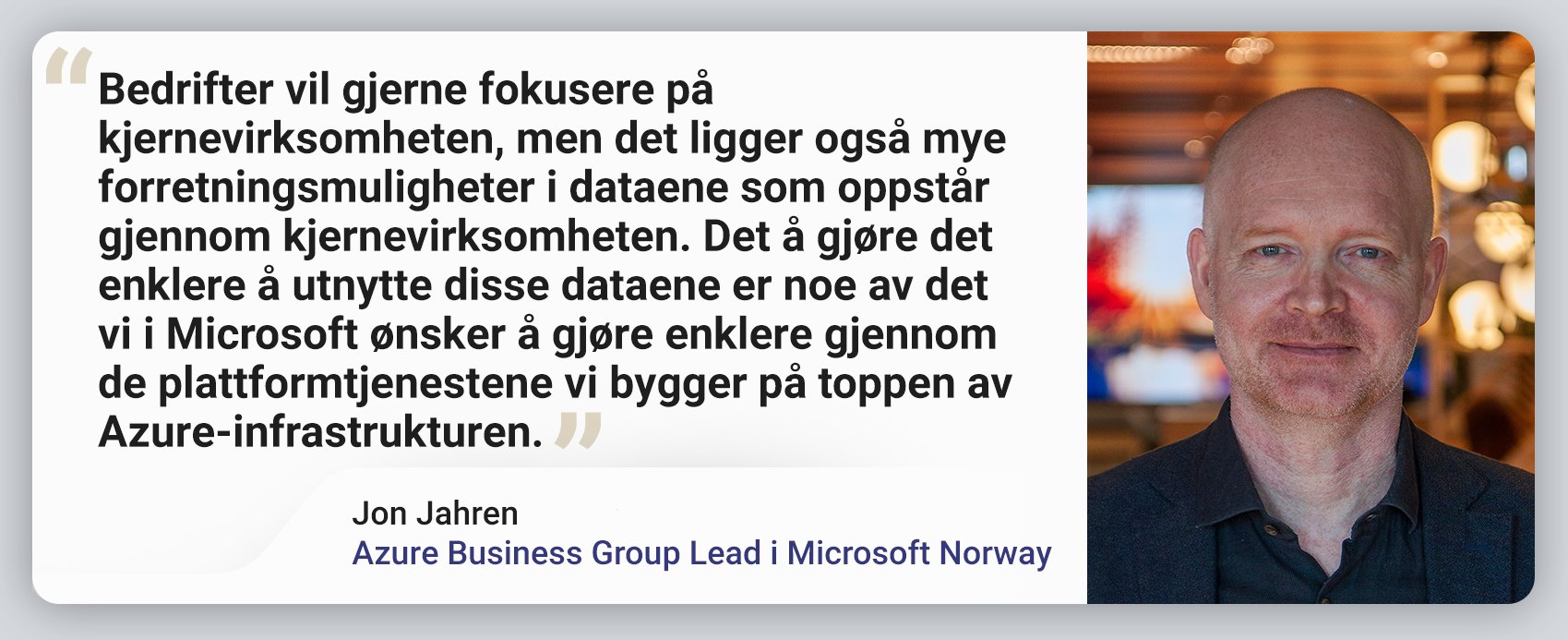
Within industrial IoT, "digital twin" is a concept that involves creating a digital representation of real things or business processes. A production line, a process, or an operation for example, where data from control systems, sensors, and business systems are used to create a digital twin of the system. This digital twin can provide insights that can be used to optimize operations, detect errors, or improve traceability.
– We previously made our own digital twin models, but have now started building solutions based on Azure Digital Twins. This makes it much easier to create easily expandable solutions. We can model any domain, such as a full production process. There are no restrictions, says Janeski.
Nebb has already used the Azure Digital Twin technology in its own products. Specifically, in the company's subsea VSDs (frequency converters) - devices that regulate the speed of motors and pumps. Digital twin functionality is integrated with Nebb's Qlarm IIoT, a cloud-based monitoring solution for industrial IoT.
– Anny product and solution you may build yourself requires a lot of maintenance, and they have a life cycle you have to manage. The fact that we can rely on platform services in Azure, means that we do not have to build everything ourselves, and it becomes easier to maintain over time, says Janeski.
Jon Jahren is Azure Business Group Lead in Microsoft Norway, and believes Nebb's solutions within industrial IoT are good examples of the benefits achieved by moving from traditional on-premises solutions to cloud solutions. He points out that many companies see it as a risk to invest in IT development projects, hire developers, and build solutions that are not part of the core business. Cloud solutions can reduce this risk.
– Companies want to focus on their core business, but there are also a lot of business opportunities in the data that arise through the core business. Making it easier to utilise this data is one of the things we at Microsoft want to improve through the platform services we build on top of the Azure infrastructure, says Jahren.
Nebb provide total solutions for automation, electrical and information systems to a number of industries world-wide, including process industry, food & pharma, marine, energy, subsea, and PMC.
Our core competence lies within automation, electrical, instrumentation, SCADA, software, and digitalisation.
[fa icon="phone"] +47 66908300
[fa icon="envelope"] sales@nebb.com
[fa icon="envelope"] general@nebb.com
[fa icon="home"] Solbråveien 43, Asker Norway